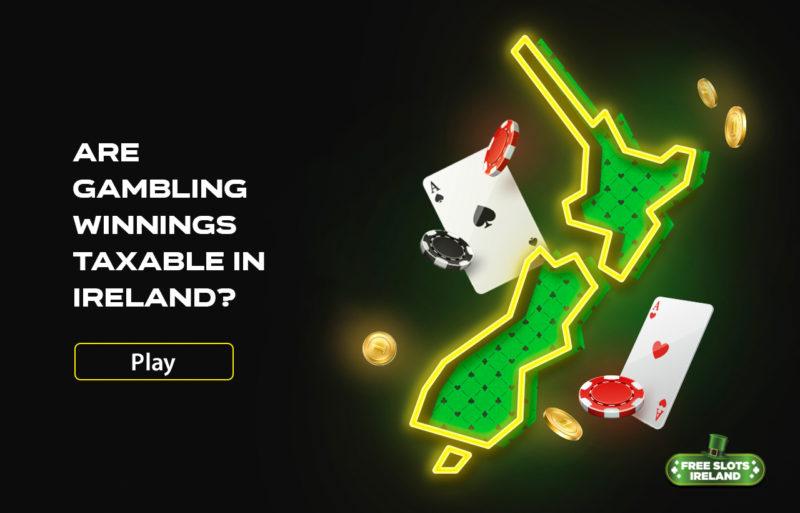Are Gambling Winnings Taxable in Ireland?
Are Gambling Winnings Taxable in Ireland? Bettings were first regulated with the 1960 Betting and Gaming Act, in which a tax was imposed either on stakes or winnings in high street betting shops. This was charged at a whopping 9% for punters. It was abolished by Gordon Brown in his March budget of 2001. Let’s find out – Are Gambling Winnings Taxable in Ireland?
Table of Contents
This taxon gambler was replaced with a 15% tax on bookmakers and their total profits at the point of supply instead. This meant that if a bookmaker wasn’t based in the UK. This was a deep concern for Brown, who feared that the UK was losing revenue to offshore gambling sites.
In fact, more and more bookmakers shifted from online operations offshore where they would only have to pay the local tax rate on profits—this was capped at 1% in Gibraltar!
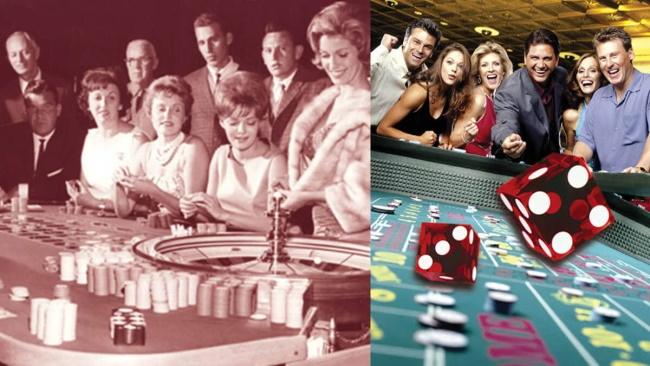
This all changed with an amendment to the 2005 Gambling Act in 2014. Now the tax was changed to 15% on all gross profits at the point of consumption including offshore businesses. This now made gambling operators in Gibraltar and the Isle of Man pay tax in order to obtain a gambling license. This amendment essentially made it illegal to operate in the UK without a UK gambling license.
This had a great impact in making UK-based bookies and betting shops more competitive—enhancing the growth and success of the gambling industry in the UK.
There is a huge difference in taxation in terms of trading and recreational gambling. Let’s discuss if your gambling rewards are taxable in Ireland.
It’s a given that your winnings from lotteries and sports betting are not subject to Ireland’s capital gains tax. It’s good news for gambling aficionados and casino enthusiasts. While most gambling game winnings aren’t taxable, it’s important to note that the income tax approach is not crystal clear when a punter is regarded as a trader or a simple recreational gambler. So how would you know if you are assuming a trader role or just a recreational gambler?
What’s The Difference Between a Recreational Gambler And a Trader?
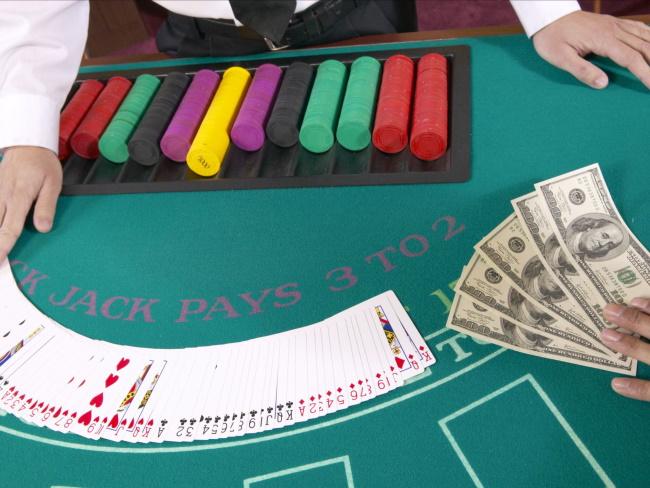
Investing in gambling is a very subjective notion. It’s a given that gambling depends on pure luck and it doesn’t require any skills to win. There is no really rational prospect of gaining profit from gambling activity, hence, it can’t be considered a trade per se. The ironic topic would be betting is systematic and organized in such a way that the profits are the reward of the bettor’s wager options. The proceeds are deemed as income from a taxable trade. Are you confused already? Could you get an answer – Are Gambling Winnings Taxable in Ireland?
Will Spread-Betting Winnings Be Taxable?

It’s a conflict that the gambling industry is debating. There’s no objective method to determine if a gambling activity is a trade per se. The Ireland Revenue Commissioners are reviewing every case based on actual facts and situations. The objective approach would only be seen if a person is regularly engaging in gambling activities. This person isn’t a recreation gambler since he is wagering to create profit from a wagered amount of money. It’s considered a trader’s approach. This would have answered the question of if Gambling Winnings are Taxable in Ireland.
According to Galway Independent, these are the factors to consider if a person is a trader:
- The scale of the activity i.e. the amount and frequency of the transactions
- The background of the individual i.e. if they are skilled or qualified in a particular area
- Does the bettor engage in the activity principally for profit or pleasure
- Does the bettor run a business ancillary to their gambling activities
Read: The Best Online Gambling Software
Are Winnings Taxable In Other Countries?
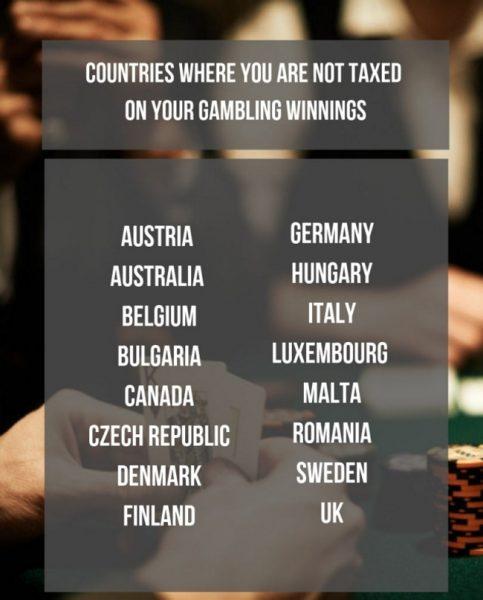
Bettors in the United States who are fortunate to win a big among of more than $5,000 in a lottery will be subjected to 30% withholding tax. For instance, if you win a whopping $100,000 jackpot, you only receive a net total of $70,000.
The Internal Revenue Service will claim the $30,000 to settle your tax liability. Good news for table games enthusiasts, your winnings on roulette, blackjack, and baccarat aren’t taxable. Gambling losses up to the total amount of winning can be offset for tax purposes as well.
So, could you get an answer to – Are Gambling Winnings Taxable in Ireland?
Gambling Winnings Taxation Is Subjective
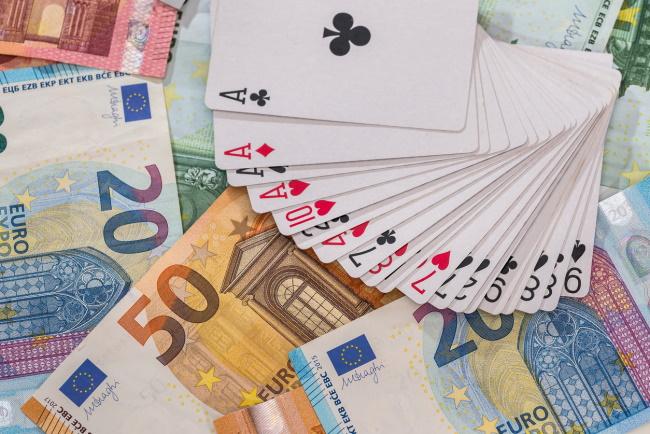
Gambling activities in Ireland aren’t all subjective to income tax. Recreational gamblers won’t feel the effects of gambling taxation. The idea though is that it is still subjective whether a person is a trader or a recreational gambler.
For instance, a trader can wager $1,000 daily per week and a recreational gambler will wager $7,000 per week; it’s the same amount but the frequency is different but the objective is the same which is to gain profit. Right? Still, confused? Let the Irish gambling regulators take care of this issue and enjoy the games. Hope you would get your answer to – Are Gambling Winnings Taxable in Ireland?
Placing Your Bets Offshore

If you’ve gambled online, you’ve noticed that the industry continues to grow. Whether you are talking about the quality of the games, technological aspects like mobile betting, or regulatory and tax issues. Many of the sites that run in the UK are based offshore. Some of these offshore companies were initially based in Britain, but quickly realized they could reduce their tax burden by locating their servers elsewhere and functioning in a tax-free jurisdiction. Could you find – Are Gambling Winnings Taxable in Ireland?
In order to stop these moves, the UK Gambling Commission now requires all sites that welcome British customers to be fully licensed, whether they are physically based in Britain or elsewhere. Apart from this, these sites must also pay the same 15% tax as their British counterparts. Of course, as a gambler, you won’t have to deal with these taxes. Nevertheless, a level playing field reduces the odds of the government making changes that adversely impact bettors.
Are Professional Gamblers Taxed On Their Winnings?

No – revenue and customs do not make a distinction between casual and professional players. Even if this may be subject to change in the future, at the present time gambling isn’t a recognized trade.
If you are a professional poker player, chances are you’ve already consulted with an accountant. Even so, there are a couple of points to consider. If you play outside of Britain, you may have to deal with local taxes. For example, if you win money in Las Vegas you could be subject to a federal withholding tax, although you can often apply for a refund as a non-resident. Also, if you become a poker celebrity and get paid for public appearances or representing an online cardroom, you could be subject to taxes but not on your winnings.
Are Bingo Winnings Taxable?

No. Your gambling winnings aren’t taxable, especially in the UK. Here you won’t have to pay taxes on any of your winnings or stakes. It doesn’t matter if you’ve won £100 or £1 million. This is applicable to all types of gambling—from slots, bingo, lotteries, and even horse racing. So if you win big, you can rest assured knowing that you can spend your money in whatever way you’d like.
as per the site you’re using, your winnings will either be paid to you in one lump sum or as a certain amount each month. If you’ve won recently, or you frequent a particular site, casino, or betting brand, you should check their Terms and Conditions. This will clear everything you need to know should your lucky day come. Is it clear – Are Gambling Winnings Taxable in Ireland?
If you are not a resident of the UK, your winnings might be subject to tax, so it’s important that you check in advance. For example:
- France has a 2% tax on poker cash pots.
- The Netherlands has a 29% tax if you win more than €454 in the lottery.
- In Spain, you need to declare winnings as income for taxation.
If you’re a UK resident and you gamble abroad, you usually won’t need to worry about taxes. Most countries have alliances with the UK, so you won’t be subject to their tax requirements.
Read: Irish Government Looking to New Bill that Addresses Online Gambling
FAQs
1. Do you have to Pay Taxes on Online Gambling Winnings in Ireland?
No! The good news for gamblers in the UK and Ireland is that they are exempt from paying any tax on their winnings. Since back in 2001, betting duty has been abolished on UK shores which also applies in the Republic of Ireland, which means that winnings earned from sports betting, online casinos, bingo, poker games, or lotteries are exempt from taxation.
2. What Countries have no Online Gambling Taxes?
- UK
- Bulgaria
- Canada
- Germany
- Austria
- Belgium
- Denmark
- Australia
- Italy
- Sweden
- Malta
This list is not exhaustive, but this is a selection of some of the popular countries where gambling winnings are not taxed. Other countries, such as India, have different laws across their various states.
3. Do professional gamblers have to pay Online Gambling Taxes?
The same rule applies to professional gamblers who place a £1 bet on the horses on a Saturday: gambling winnings are exempt from taxation in the UK irrespective of the volume of wagers placed. It’s noticeable that a tax refund on losses can’t be sought by those who are self-assessed.
For countries outside of the UK, professional gamblers will be subject to the tax laws of that particular jurisdiction. UK poker players who head to Las Vegas to play are still subject to the gambling laws in their home country, although 30% of their winnings are withheld unless a W2-G form is completed.
4. Do Online Gambling Sites have to pay taxes?
Yes, from the introduction of the Point of Consumption Tax, online gambling sites – no matter where they are based – are obliged to pay 15% on all wagers accepted by UK players.
5. Are online Gambling Taxes the same for Casinos, Bingo, and Poker?
Any activity that falls within the definition of gambling under the jurisdictions’ legal framework is subject to the same level of taxation, whether that’s
6. Do I have to declare my Online Gambling Winnings?
No, since the betting duty was abolished in 2001, you do not have to declare winnings to HMRC in the UK or Ireland. In Ireland, gambling winnings must be declared under the terms of the US Tax Code, and other countries have similar rules.
7. Can I give or gift my Online Gambling Winnings Away?
Gambling winnings are subject to inheritance tax if you should pass them on within seven years of the gifting. Gifts of no more than £250 can you give freely.
Conclusion
In conclusion, it is clear that gambling winnings in Ireland are subject to taxation. As per the current tax laws, all gambling winnings, including those from lotteries, sports betting, and casino games, are subject to a tax rate of 20%. However, it is important to note that not all gambling activities are taxable, and certain exemptions do exist.
It is also essential to keep proper records of all gambling activities and winnings to ensure accurate tax reporting. Failure to comply with tax laws can result in penalties and legal consequences.
Overall, while gambling can be a fun and exciting activity, it is important to understand and follow the legal and financial implications of any potential winnings. By doing so, individuals can ensure that they remain compliant with the law while still enjoying their favorite games and activities.
